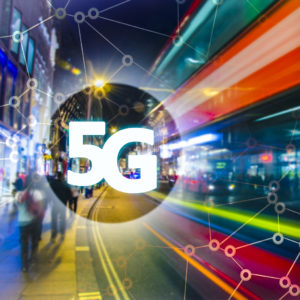The Federal Communications Commission recently approved a proposal to speed up deployment for the next generation of wireless service, known as 5G. The plan puts states and localities on a shot clock for approving installments and caps fees at rates that compensate them for their troubles, but don’t allow them to extract a profit.
Less red tape will ensure that consumers have access to America’s next era of innovation, with virtual reality, 4K video, self-driving cars, remote surgeries, and more.
The new wave of 5G devices and applications will require a major network upgrade. Increased data demands a denser network infrastructure than currently exists. This means more and smaller radio access nodes located closer together, known as small cells. Experts predict that installing the hundreds of thousands of small cells needed to support the 5G revolution will cost approximately $200 billion.
That capital investment is enormous and there are still technical challenges to overcome—such as eliminating interference from trees, weather, and man-made structures. But the FCC’s plan solves one major roadblock: excessive fees from local and state governments looking to use the 5G rollout as an ATM.
Some local and state officials have wisely called on the FCC to streamline the approval process for small cell deployment. In a letter to the FCC, the mayor of Sterling Heights, Michigan, wrote, “there are significant, tangible benefits to having a nation-wide rule that promotes the deployment of next generation wireless access without concern that excessive regulation or small cell siting fees slows down the process.”
But there are plenty of examples of officials trying to game the system to fill the public coffers. Crown Castle, America’s largest provider of wireless infrastructure, recently claimed that Newport Beach, California, adopted an annual charge of $10,800 per small cell site. That price is completely out of line with the rates of states who have already acted to limit their fees for wireless attachments: Florida and Rhode Island at $150 per attachment and Ohio at $200. Newport Beach politicians seem to be acting in the short-term interest of their city’s bank account, not in the long-term interests of their residents.
The political impulse to prioritize profits over progress is why the FCC must intervene in order for the United States to win the 5G race. The Wall Street Journal quoted former FCC Commissioner Rob McDowell that being slow to 5G puts, “the U.S. at a competitive disadvantage globally.” The article explains that if, “the U.S. hadn’t led the way of 4G, the country might not dominate mobile technology, and its platforms, such as Instagram, Snapchat, and perhaps even Facebook and Netflix might not have become global powers.”
FCC Commissioner Brendan Carr hopes that his agency’s efforts to reduce state and local obstacles will “reduce the regulatory costs of small cell deployment by 80 percent, cut months off deployment timelines, and incentivize thousands of new wireless deployments.” The 5G speeds will be at least 10 times faster than the current 4G standard, and a report from the American Consumer Institute found that consumer benefit from 5G in the hundreds of billions of dollars. The stakes are too high to let meddling local and state politicians extract their pound of flesh.
The FCC’s plan will allow companies to complete deployment of this new infrastructure quickly and efficiently. The least government can do is get out of the way.

